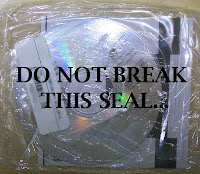
For as long as computers have had floppy drives, people have been buying software. There have been some quirks that have made buying software somewhat different from buying all other physical products. The biggest difference? The inability to return open software.
Once you open the software you can peruse the lengthy licensing agreement, and usually find a clause about returning the software for a refund if you don't agree with the terms. Of course the reality is, no one takes back open box software. And granted there's some legitimacy for that, considering you could've just copied the software, and now brought back the original to "cheat" the system.
Through the years, we've been conditioned to think this is normal, and unlike almost any other product, if we try software and decide it's awful, too bad. No refund for you.
Enter the iTunes App Store. As you know, the apps use the same fairplay DRM (technically v 2.0) found in the iTunes music store. Among other things, this DRM keeps you from sharing, or copying apps from the App Store. Without the DRM key assigned to your device/computer, the software will not run.
With the App Store, the logical reasoning behind why software can't be returned has been removed. We're all agreeing to this because its the way software has always been sold. There's no reason the store couldn't have say a 14-day return policy to match the policy of the Apple retail stores. It would be quite simple to de-activate the license key for that program, and refund the money.
I don't expect Apple to add this feature on their own. There's nothing in it for them but lost revenue. They and the developers do far better by having you buy an app without refund before deciding whether it will even do what you need it to do. We, as consumers have the power to start to look at DRM software the same way as any item in the physical world. If it is impossible to keep a digital copy of something purchased, then it should certainly be possible to return it.
If you are able to buy a Texas Instruments scientific calculator, try it, and return it if you don't like it, why should calculator software for the iPhone that cannot be copied have a different policy?
No comments:
Post a Comment